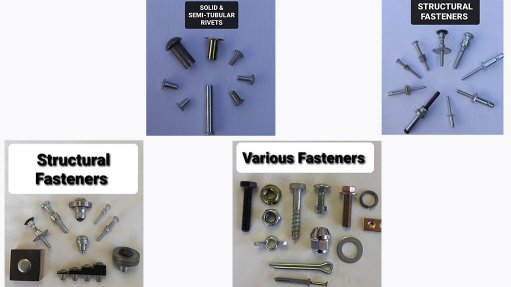BePRECISE consortium unveils guidelines to enhance reporting in precision medicine research
This article has been supplied.
The inaugural reporting guidelines for precision medicine research, of which Wits University Professor Michèle Ramsay is co-author, have been published in Nature Medicine.
The paper from the BePRECISE consortium describes comprehensive guidelines aimed at improving the accuracy, safety, and health equity in precision medicine.
BePRECISE is Better Precision-data Reporting of Evidence from Clinical Intervention Studies & Epidemiology.
Chair of the Guidelines committee, Professor Paul Franks, Lund University, Sweden, says: “Precision medicine seeks to tailor healthcare to individual characteristics, accounting for the heterogeneous [dissimilar] nature of diseases such as diabetes, cardiovascular disease, cancers, mental health disorders, musculoskeletal disorders, and infectious diseases. However, this heterogeneity, combined with varied research methodologies, has created challenges in comparing studies and implementing findings across the field.”
Professor Michèle Ramsay, Director of the Sydney Brenner Institute for Molecular Bioscience (SBIMB) at the University of the Witwatersrand, Johannesburg (Wits University), is a member of the BePRECISE consortium that developed the guidelines and a co-author of the paper.
Ramsay says: “Africa and its people will contribute to global solutions in the field of precision medicine by virtue of their unique genetic diversity and challenging environments. They should not be left behind, but potential benefit will require generating and sharing research data and reporting outcomes according to international best practices.”
The SBIMB at Wits University conducts high impact and relevant research on Africa’s genetic heritage that will ultimately contribute to improving the health of people living on the continent. Its vision is to create an African Genomics research hub with a focus on strengthening the continent’s capacity to analyse large genome, transcriptome and epigenomic datasets for the purpose of promoting a precision medicine approach in Africa.
"The BePRECISE checklist is an important tool to ensure that research studies can be compared, and similarities and differences accurately evaluated, to avoid a one-size-fits-all misfit for African populations,” says Ramsay.
A first for precision medicine research standardised reporting guidelines
To date, there have been no standardised guidelines for reporting precision medicine research, which has hindered progress. Addressing this gap, the BePRECISE consortium - comprising 23 global experts in precision medicine, cardiometabolic diseases, statistics, editorial, and lived experience - conducted a scoping review of evidence and engaged in a modified Delphi and nominal group technique process to create the new reporting guidelines.
The resulting BePRECISE Checklist includes 23 items organised into five sections corresponding to typical sections of a scientific publication.
A dedicated section on health equity emphasizes the importance of including under-represented and under-served communities in precision medicine research, as well as patient and public involvement and engagement.
Adopt guidelines to expedite equitable clinical implementation
The BePRECISE consortium encourages adoption of these guidelines by researchers, reviewers, funders and editors to promote and expedite the equitable clinical implementation of precision medicine. The checklist is expected to enhance the quality and comparability of precision medicine studies, fostering advancements in healthcare for all.
Comments
Press Office
Announcements
What's On
Subscribe to improve your user experience...
Option 1 (equivalent of R125 a month):
Receive a weekly copy of Creamer Media's Engineering News & Mining Weekly magazine
(print copy for those in South Africa and e-magazine for those outside of South Africa)
Receive daily email newsletters
Access to full search results
Access archive of magazine back copies
Access to Projects in Progress
Access to ONE Research Report of your choice in PDF format
Option 2 (equivalent of R375 a month):
All benefits from Option 1
PLUS
Access to Creamer Media's Research Channel Africa for ALL Research Reports, in PDF format, on various industrial and mining sectors
including Electricity; Water; Energy Transition; Hydrogen; Roads, Rail and Ports; Coal; Gold; Platinum; Battery Metals; etc.
Already a subscriber?
Forgotten your password?
Receive weekly copy of Creamer Media's Engineering News & Mining Weekly magazine (print copy for those in South Africa and e-magazine for those outside of South Africa)
➕
Recieve daily email newsletters
➕
Access to full search results
➕
Access archive of magazine back copies
➕
Access to Projects in Progress
➕
Access to ONE Research Report of your choice in PDF format
RESEARCH CHANNEL AFRICA
R4500 (equivalent of R375 a month)
SUBSCRIBEAll benefits from Option 1
➕
Access to Creamer Media's Research Channel Africa for ALL Research Reports on various industrial and mining sectors, in PDF format, including on:
Electricity
➕
Water
➕
Energy Transition
➕
Hydrogen
➕
Roads, Rail and Ports
➕
Coal
➕
Gold
➕
Platinum
➕
Battery Metals
➕
etc.
Receive all benefits from Option 1 or Option 2 delivered to numerous people at your company
➕
Multiple User names and Passwords for simultaneous log-ins
➕
Intranet integration access to all in your organisation














